10 Clever DIY Work Van Organization Ideas You Can Make Today (With Pictures)
-
Ed Malaker
- Last updated:
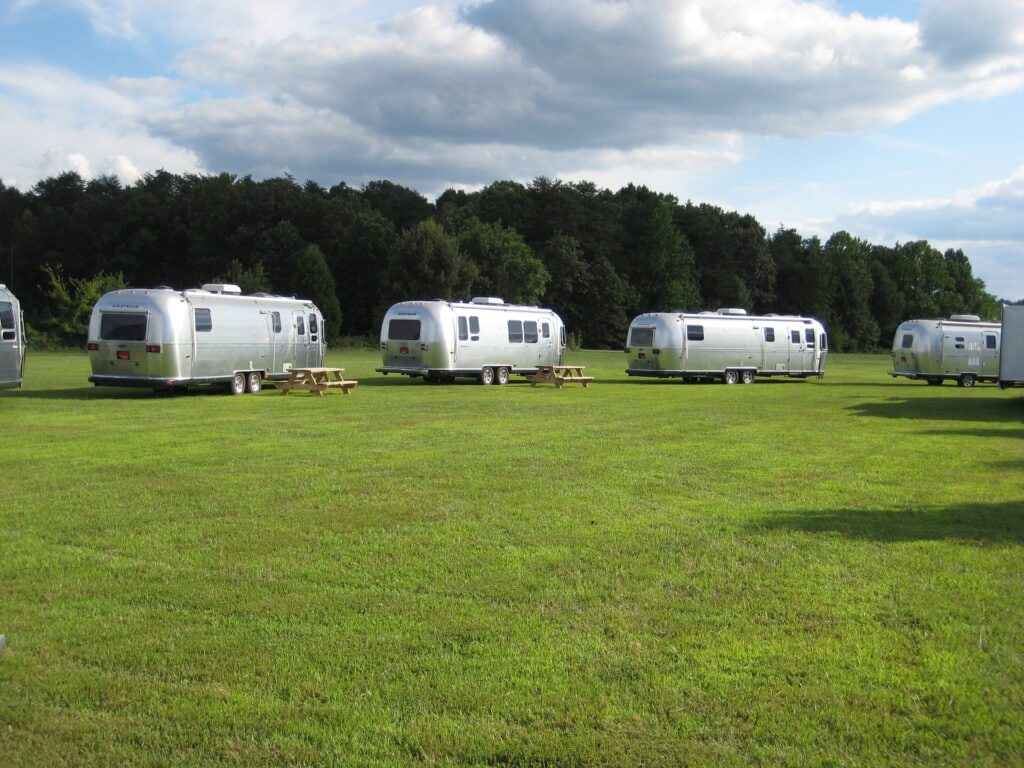
If you are a plumber or contractor who does most of your work in a van, you know how messy and disorganized it can get. Finding ways to get organized can reduce costs, so keep reading as we list several projects that will help you reorganize your portable office permanently.
The 10 DIY Work Van Organization Ideas
1. DIY Van Insulation by Divine on the Road

| Materials: | Foam board, fiberglass insulation |
| Tools: | Screwdriver, glue, pliers, hammer |
| Difficulty: | Moderate |
If you frequently travel or do work inside the van, the DIY Van Insulation project can help make it more comfortable in both hot and cold weather. It will also help you save on fuel costs because it will be easier to keep warm or cool. Unfortunately, it doesn’t help much with the organization, but if you are cleaning out the van for one of these other projects, it will be the perfect time to add insulation.
2. DIY Overhead Storage by Charles Stemen
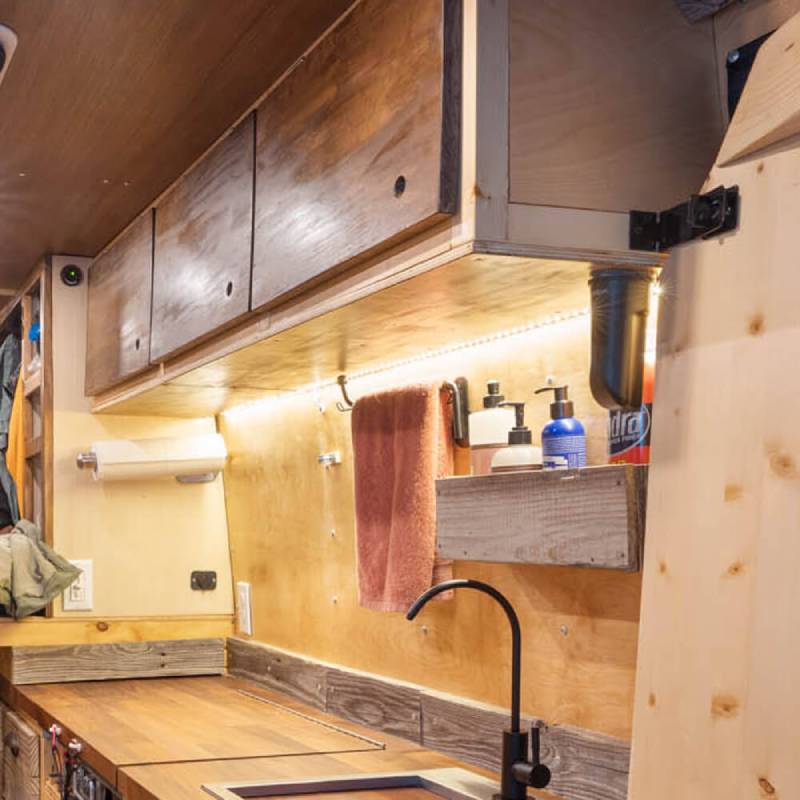
| Materials: | Plywood, wood glue, latches, hinges |
| Tools: | Hammer, saw, drill |
| Difficulty: | Moderate |
When it comes to organization, few projects will do more to help than DIY Overhead Storage. This project shows you how to install several overhead cabinets that you can use to hold your stuff while traveling between locations. It’s customizable, so you can build it in any model van, and the result is durable and attractive. Paint or stain to get the finished appearance that you are after.
3. DIY IKEA LED Lighting by Livin’ Lightly

| Materials: | IKEA LED lights, batteries |
| Tools: | Glue, tape |
| Difficulty: | Easy |
The DIY IKEA LED Lighting project is extremely simple and only requires you to install IKEA LED lights wherever you find it hard to see. Adding lighting can be one of the best ways to organize because many of us have a hard time seeing in poor lighting, causing us to spend more time looking for what we need.
4. DIY Solar Powered System by The Vanimals
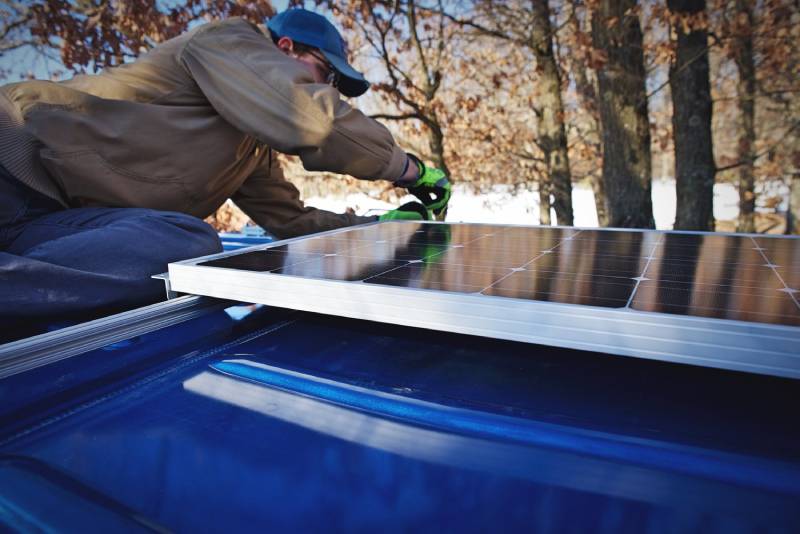
| Materials: | Solar panels, tape, sealant, wire |
| Tools: | Drill, saw, clamps |
| Difficulty: | Advanced |
Adding a solar panel to your van using the DIY Solar Powered System project can be a great way to add additional lighting to your vehicle. The solar panel generates the electricity to power the lights, taking the strain off your car battery, and it can be especially helpful if you stay in the same area for a while. The electricity it generates can even power other items, like a radio or television, and you can use it to charge the batteries on your power tools or smartphones.
5. DIY Van Racking by This is Carpentry
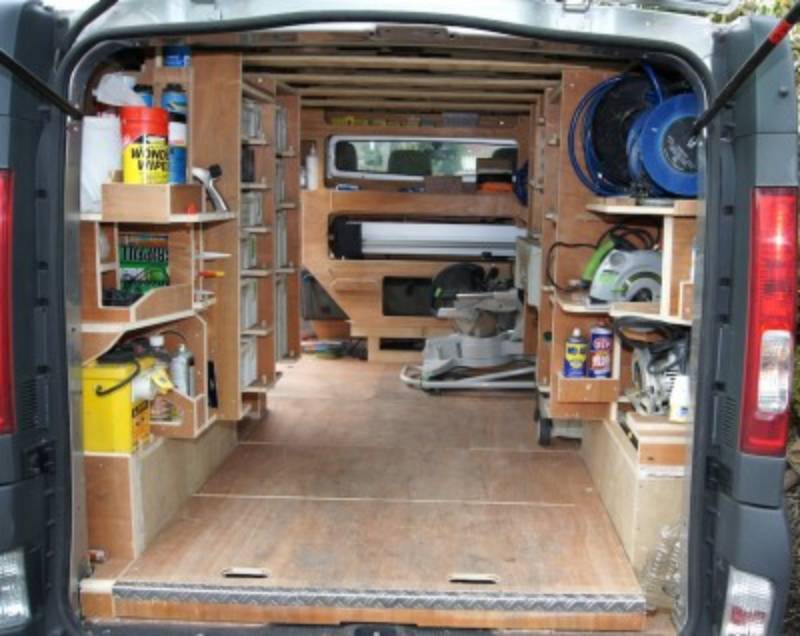
| Materials: | Boards, screws, glue |
| Tools: | Drill, saw, clamps |
| Difficulty: | Advanced |
Adding racks to your van can greatly improve your storage space even beyond what the DIY Overhead Storage plan can offer. It’s customizable, and you can make the rack longer or shorter to suit your needs or the dimensions of your van.
6. DIY Small Parts Organizer by Kreg Tool

| Materials: | Plywood, stackable storage bins |
| Tools: | Drill, saw, tape measure |
| Difficulty: | Medium |
The DIY Small Parts Organizer plan is a favorite because it isn’t too difficult to build and installs easily into the van. It also provides you with many different places to put your things, so it’s easy to organize. The author lays out the instructions so they are easy to follow, and you can even use this small parts organizer outside the van in a room or workshop.
7. DIY Small Bin Organizer Shelf by Instructables
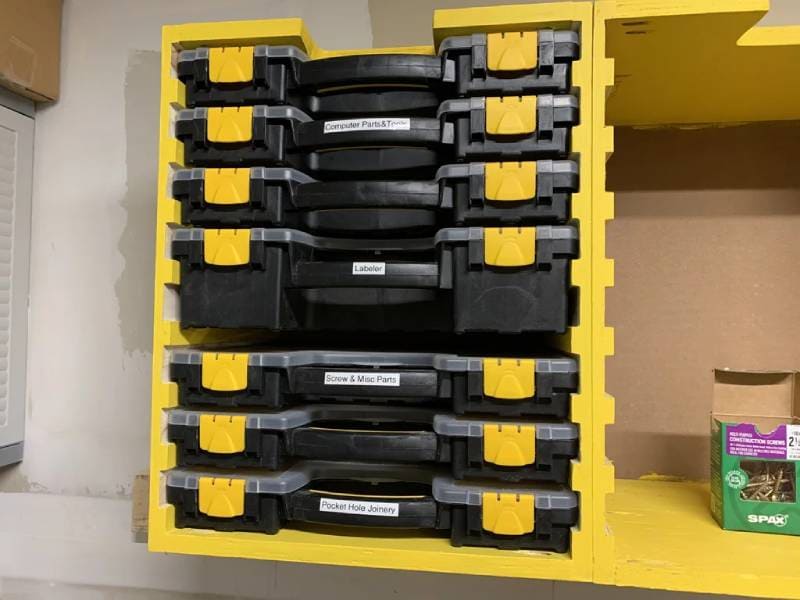
| Materials: | Plywood, screws, glue, paint |
| Tools: | Table saw, ruler, tape measure |
| Difficulty: | Advanced |
The DIY Small Bin Organizer results in a handy storage compartment that you can use in the van to help organize your items better. It looks professional, is customizable, and has several boxes that will hold everything from nuts and bolts to ratchets and power tools. You can also use it outside the van to improve your organization in other places.
8. DIY Storage Trunk by Love Grows Wild

| Materials: | Wood, screws, glue, paint |
| Tools: | Hand saw, ruler, hammer |
| Difficulty: | Advanced |
The DIY Storage Trunk is a great option if you have many large tools and supplies that you need to organize and keep out of view. It’s durable and customizable, so it fits nicely in your van without requiring too much space. It’s relatively easy to build and doesn’t require many materials outside wood and screws.
9. DIY Blanket Chest by Instructables
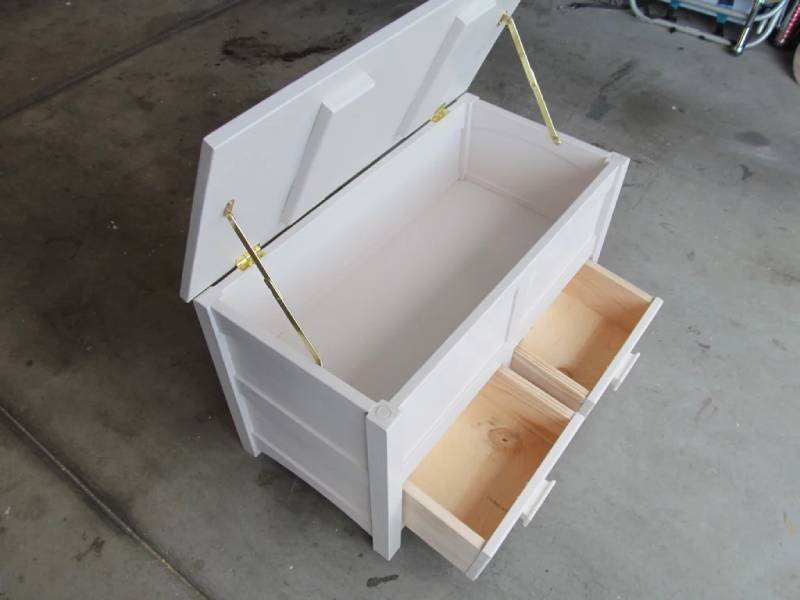
| Materials: | Wood, screws, paint |
| Tools: | Table saw, ruler, hammer |
| Difficulty: | Advanced |
The DIY Blanket Chest is perfect for a child’s bedroom, but it can also make a great storage chest for a cluttered van. It has a large capacity, like the DIY Storage Trunk, but it adds drawers for smaller tools, helping you fit more in a small space. It’s attractive and durable, and you can finish it with paint or stain to help it match the van’s interior.
10. DIY Mobile Workbench Pegboard Organizer by Rain on a Tin Roof
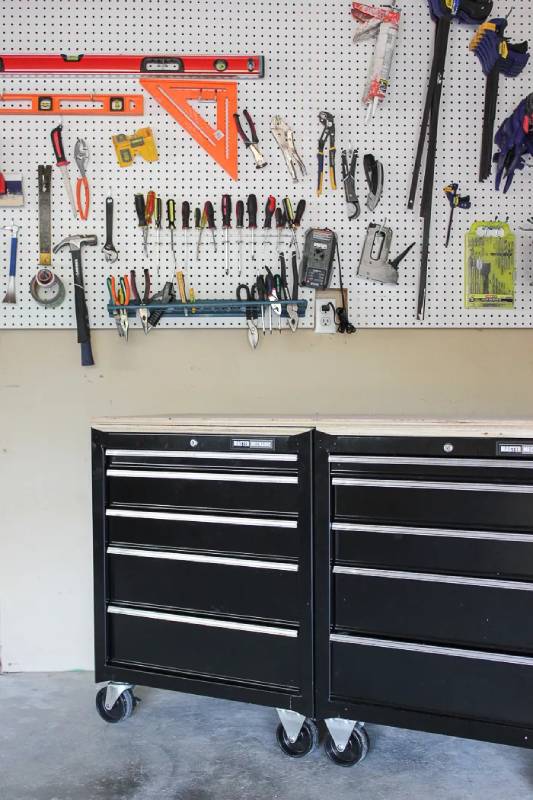
| Materials: | Pegboard, screws, pegboard hooks |
| Tools: | Saw, ruler |
| Difficulty: | Moderate |
The DIY Mobile Workbench Pegboard Organizer is one of our favorite projects because pegboard is inexpensive and easy to find. It’s also easy to cut to shape and install, and it’s quite durable. You can move the pegboard hooks around to make it easy to organize almost anything. The project walks you through the installation and explains how to hang various items.
Conclusion
Organizing a work van is challenging but not impossible, especially if you follow one of these plans. We like the DIY Mobile Workbench Pegboard Organizer because it’s one of the easiest plans to install and provides an effective way to organize your tools. Other great projects include the DIY Overhead Storage plan and DIY Van Racking, which will provide you with plenty of storage space. Projects like the DIY Van Insulation and DIY IKEA LED Lighting can help make it easier to organize by improving the environment.
See Also:
Featured Image Credit: WikimediaImages, Pixabay
Contents
